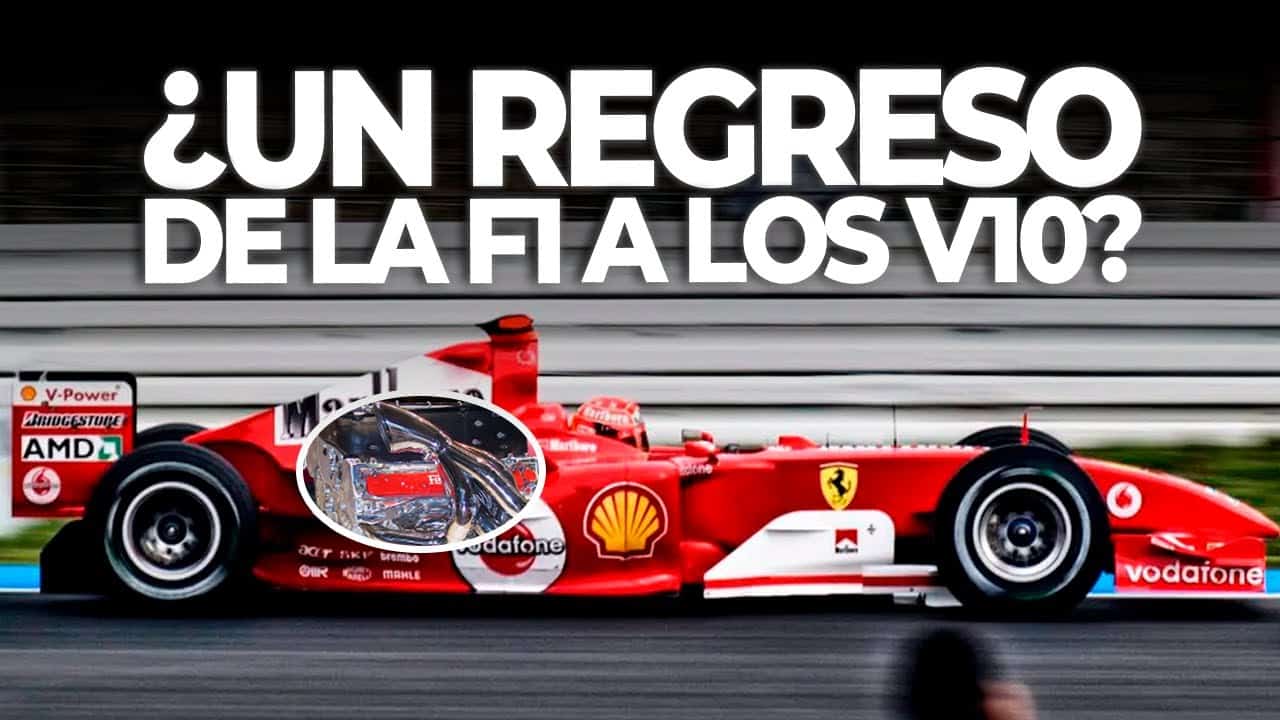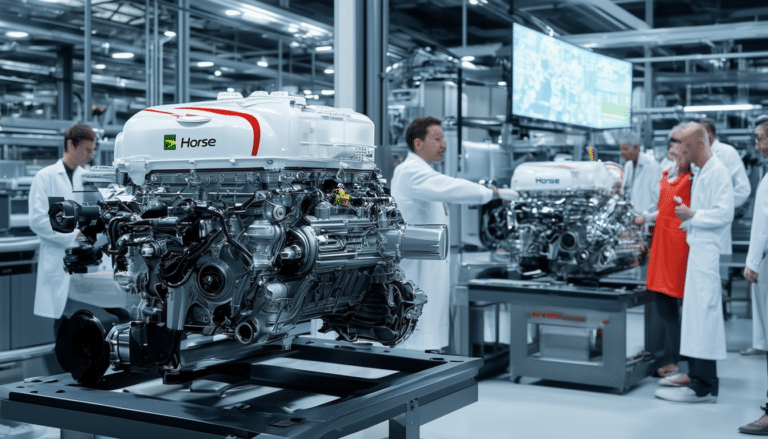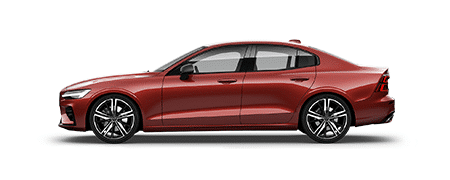La Fórmula 1 evaluates the possibility of reintroducing V10 engines using sustainable fuels

The Formula 1 is at a point of reflection regarding its future, considering the reintroduction of the V10 engines in a context where sustainability is becoming increasingly important. As the category commits to using sustainable fuels and achieving carbon neutrality by 2030, the debate arises on how to balance the essence and sound of these iconic engines with current environmental demands. The proposal to evaluate the return of the V10s aims not only to revive the characteristic sound of these units but also to consider their viability within a framework of sustainability that could redefine the future of competition.
Formula 1 evaluates the possibility of reintroducing V10 engines using sustainable fuels
Formula 1, the pinnacle of motorsport, faces a dilemma about its future and environmental impact. With the recent introduction of commitments towards sustainability, the debate about the possible reintroduction of the V10 engines arises, but this time using sustainable fuels. In this article, we will explore the implications of this proposal, the FIA’s stance, and the challenges that arise in this context.
History of V10 engines in Formula 1
The era of V10 engines in Formula 1 spans from 1989 to 2005, marking a significant period of power and excitement in racing. These engines, which provided a characteristic sound and incredible power, were replaced by V8 engines and later by the current turbo-hybrid V6s in 2014. These changes aimed to increase energy efficiency and sustainability but also generated criticism regarding the loss of the sport’s essence.
The proposal to reintroduce the V10s
With the growing interest in sustainable and less polluting fuels, FIA President Mohammed Ben Sulayem has suggested considering the return of V10 engines. This is due to the need to regain some of the appeal and drama that characterized F1. However, this idea is not free from controversy.
Challenges of sustainability
The main challenge facing F1 in this proposal is sustainability. The organization has set the goal of being carbon neutral by 2030. Any return to V10 engines must align with these environmental commitments. The discussion revolves not only around sound and power but also involves the type of fuel that will be used and the efficiency of the engines.
Divided opinions within the F1 community
The idea of returning to V10 engines has generated extensive debate within the Formula 1 community. While some prominent figures are in favor of this proposal, arguing that it will bring excitement back to racing, others, including F1 Sports Director Ross Brawn, have expressed their preference for continuing with a philosophy of more efficient hybrid engines.
Alternatives and the future of Formula 1
Although the reintroduction of V10 engines is an option, the FIA has other alternatives in mind. Planning for new engines in 2026 points toward a regime that combines efficiency and sustainability, possibly eliminating components like the MGU-U and prioritizing the use of synthetic fuels. The direction that F1 chooses will influence not only the races but also the public’s perception of the sport’s commitment to sustainability.
Conclusion and expectations
The assessment of the reintroduction of V10 engines in Formula 1 is a matter of great importance. As the conversation about sustainability and efficiency evolves, the balance must tip toward a future where the noise and excitement of racing can coexist with a serious commitment to the environment. F1, by exploring all options, finds itself in a unique position to lead the change in motorsport globally.
The possible reintroduction of V10 engines in Formula 1
Formula 1 is in the midst of an exciting debate about the possibility of returning to the V10 engines. These engines, which were an iconic feature of the category between 1989 and 2005, generate a distinctive and thrilling sound that many fans yearn for. However, the recent discussion has centered around the viability of implementing these engines within a competition that seeks to become increasingly sustainable.
The president of the FIA, Mohammed Ben Sulayem, has proposed that the return of the V10s could be viable if sustainable fuels are used. This suggestion is framed within Formula 1’s commitment to achieving carbon neutrality by 2030. This goal requires a balance between the excitement of competition and the need to adopt more responsible practices from an environmental standpoint.
Despite the interest in the V10s, Formula 1 has been cautious. Experts and relevant figures in the sport, such as Ross Brawn, have defended the importance of moving forward with hybrid technologies that are more efficient in fuel consumption. The transition to engines that combine performance and sustainability presents a significant challenge but also an opportunity for innovation.
The community of fans, as well as teams and manufacturers, are divided. While some call for the return of the distinctive roar of the V10s, others emphasize the need to advance towards a future where Formula 1 continues to lead in automotive technology and ecological responsibility. Thus, the discussion on the possible reintroduction of the V10 engines will remain a hot topic as the sport evaluates its options for the future.




